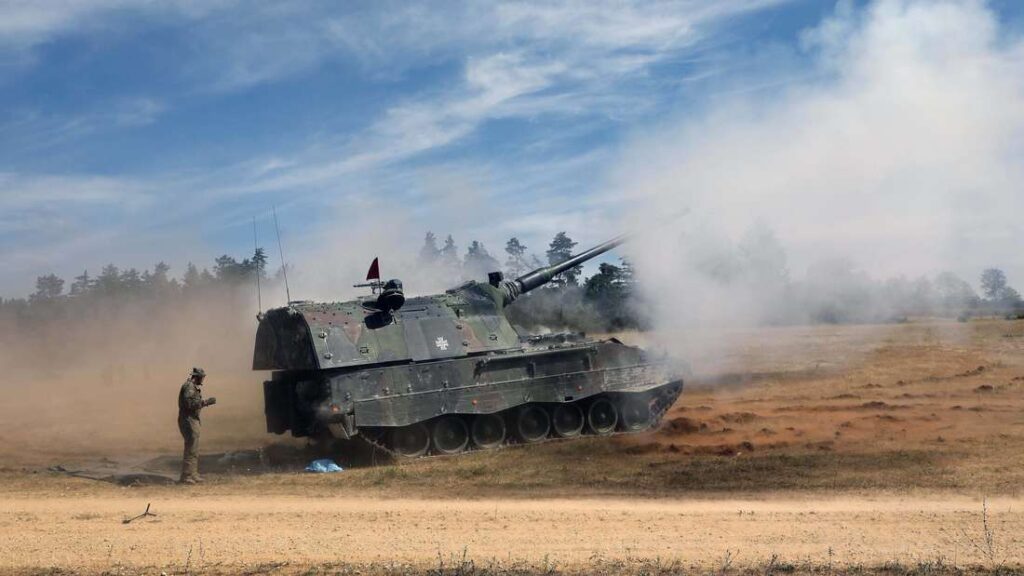Russia – Ukraine conflict: What next?
The Ukrainian military command seems somehow cautious about new large offensive operations at this stage, as an uncontrolled advance after the achieved successes in establishing control over recaptured vast areas could lead to catastrophe

By Valentin Yakushik
After the recent Ukraine’s successful counter-offensive in the north-east of Ukraine, there has been little new information in foreign media about the further developments in the battlefields there. But many journalists are actively asking analysts: “What’s next? What follows?” I was also asked such question by the Dutch newspaper “Trouw”
Ukraine’s President Volodymyr Zelensky has said in this respect: “Perhaps it seems to someone now that after a series of victories we have a certain lull. But this is not a lull. This is preparation for the next sequence” [2].
In fact, the active phase of the Ukrainian army’s offensive that led to the collapse of Russian forces in the Kharkiv region lasted from 6 to 11 September 2022. As for the type of military operation, it was a real “blitzkrieg” (a lightning fast operation) in almost all of its typical aspects. Although only on a regional scale.
Now the Ukrainian army is consolidating its positions in the areas under its control, carrying out smaller-scale offensives in a number of frontline locations in eastern and southern Ukraine.
The Ukrainian military command seems somehow cautious about new large offensive operations at this stage, as an uncontrolled advance after the achieved successes in establishing control over recaptured vast areas could lead to catastrophe, like it once had happened in the same terrain in May 1942 with advancing Soviet troops fighting Nazi German forces.
The art of war presupposes a balance between the different phases of war, characterised by dissimilar types of combat operations in them, and consideration of the changing correlation of forces of the opposing sides in each theatre of war (deployment area). For the Ukrainian authorities, it is now the time to establish their control in every part of the Kharkiv region. An active phase of advance is now developing in the Kherson and Zaporizhia regions. There, however, a different kind of warfare is taking place – frontal battles modelled on much of the First World War on the western front of the German Empire. It is a war of attrition on both sides in the Kherson and Zaporizhia regions.
The Russian military command are trying to draw lessons from their defeat in the Kharkiv region. They are expanding their manpower and attracting different types of new resources. There are also signs that they are considering changing the type of war to a “total war”, with significantly increased attacks on all major infrastructures.
The successful Ukrainian counter-offensive has been described by some experts as one of the best military operations since the end of World War II. In fact, the Ukrainian army’s successful operation in the Kharkiv region on 6 – 11 September 2022 is usually attributed to the talented Ukrainian Lieutenant General Oleksandr Syrsky, the commander of Ukrainian ground forces. His successful “blitzkrieg” operation will be recorded in the textbooks of military theory and practice along the lines of the incredible (from a technical-organisational point of view) operations of German General Heinz Guderian during World War II, as well as the successes of the extremely talented strategy and tactics of North Vietnamese General Van Tien Dung during the spring offensive of the People’s Army of Vietnam in 1975.
Other historical comparisons may also be mentioned. Meanwhile it is clear that the wars combine different kinds of components: tragedies at the personal, family and national levels, the high flight of the human spirit and will, the utmost effort of the peoples, and also the creative development of the ancient science of warfare, which unfortunately remains relevant and topical in the third decade of the 21st century.
The author is a Kiev-based political scientist and scholar.
Views are personal and IAR neither endorses nor is responsible for the same.
We welcome all pitches and submissions to IAR via email: iareview2019@gmail.com